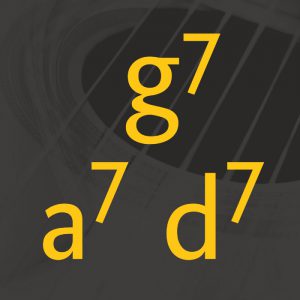 When I was eighteen and just started playing the piano, I talked to my somewhat eccentric uncle, who was a fanatic amateur musician. He told me I should write minor chords with lowercase letters. Being impressed by his overwhelming personality, I followed his advice. And it is not a bad idea! It matches the way major and minor keys are sometimes notated in classical music (especially in European countries). For example, a violin concerto would be in D major or in d minor. And using uppercase and lowercase matches the way scale degrees are commonly notated.
When I was eighteen and just started playing the piano, I talked to my somewhat eccentric uncle, who was a fanatic amateur musician. He told me I should write minor chords with lowercase letters. Being impressed by his overwhelming personality, I followed his advice. And it is not a bad idea! It matches the way major and minor keys are sometimes notated in classical music (especially in European countries). For example, a violin concerto would be in D major or in d minor. And using uppercase and lowercase matches the way scale degrees are commonly notated.
If you write minor chords using a lowercase letter, than you don't need the indication m anymore. If we apply this to My funny Valentine, it looks something like this:
d d/
C#
My funny Valentine
d/
C d/
B
Sweet comic Valentine
B@
g11
You make me smile
e7<5
A7
With my heart
There is definitely something in favor of this kind of notation. It's very concise and intuitively compelling. I've used this way of writing minor chords for quite some time. Until a couple of years later, I realized that, though it is handy, it just isn't the common way of notating chords. Nowadays, in scores I will always conform myself to the standard with capitals.